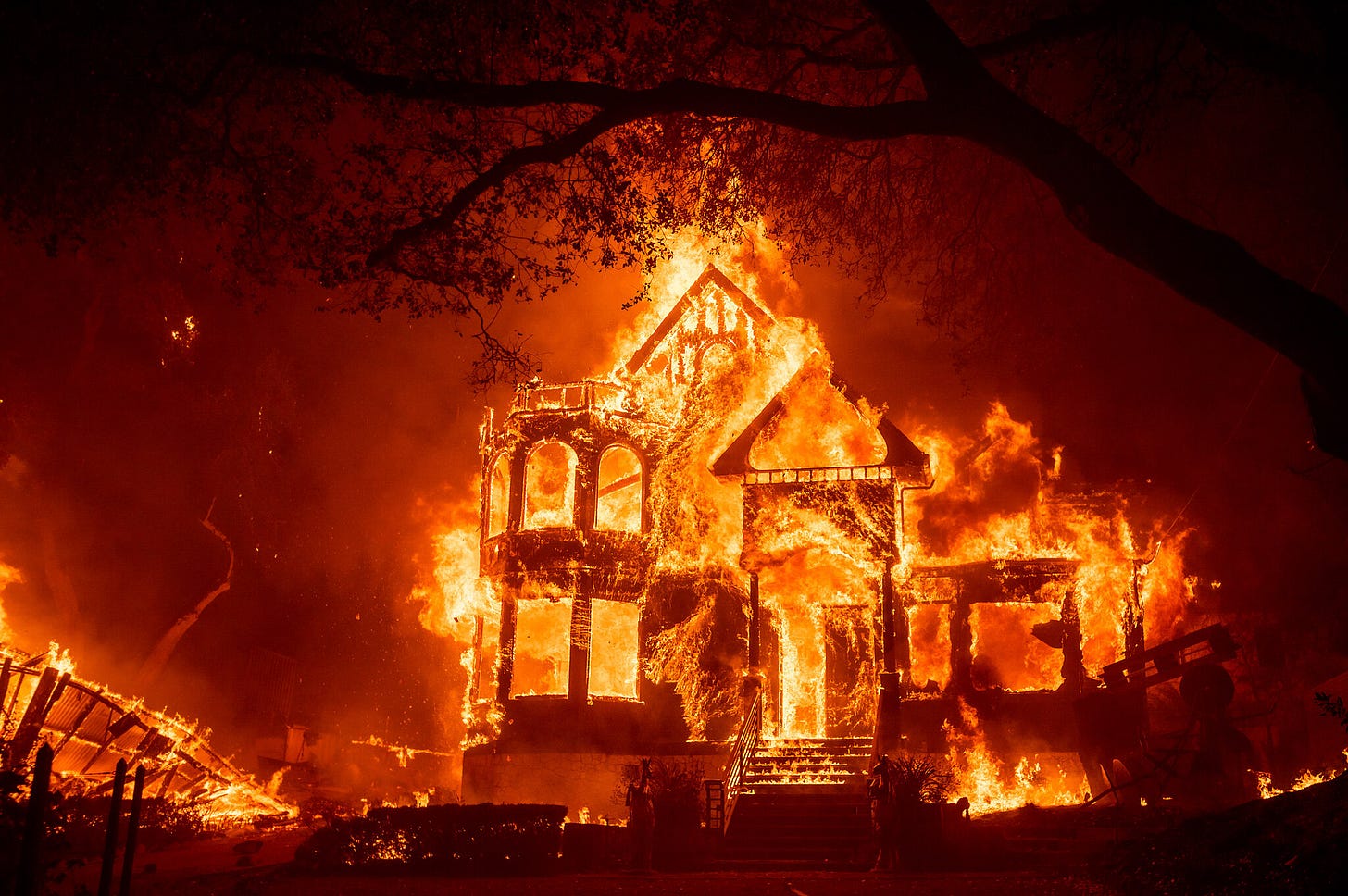When a progressive utopia burned
Gender ideology cannot survive contact with nature's wrath
On October 20, 1991, a spark ignited on a dry California hillside. With shocking speed, it turned into a raging firestorm which swept into Oakland and Berkeley, driven downwards by the so-called ‘Diablo winds’ which came off the mountain range at 100km per hour.
The fire was fierce enough to also generate its own winds. As the superheated gusts met the cool air over the bay, vortices formed which spread embers in all directions. Chaos ensued.
Within four hours, it had destroyed over 3000 homes and everything inside them. Over the next two days, it wrought billions of dollars of damage and killed 25 people. It was the largest urban fire that the United States had ever witnessed.
A leading anthropologist, Susanna Hoffman, was among the people whose homes - and entire ways of life - were destroyed. In the aftermath of the fire, she wrote a brave but largely forgotten anthropological history titled ‘The Regenesis of Traditional Gender Patterns in the Wake of Disaster’.
Hoffman, a progressive, records in unflinching detail how the fire destroyed not just the homes but the entire progressive supersystem of her Bay Area neighbourhood:
Keep reading with a 7-day free trial
Subscribe to Becoming Noble to keep reading this post and get 7 days of free access to the full post archives.


